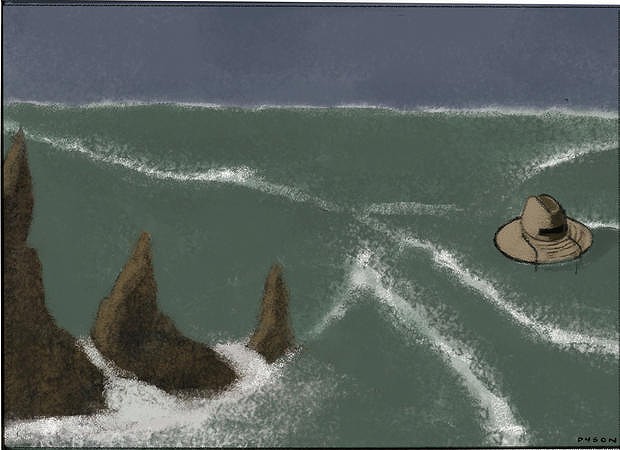Search
Democracy Links
Member's Off-site Blogs
lest we forget .....

Offshore processing is not a solution and will not stop people dying at sea.
Both major parties met ''in good faith'' to discuss the asylum seeker stalemate before Christmas. The result was another meeting to discuss the options in a few weeks' time. Both parties remain united in their support for the offshore processing of asylum seekers. But on the table we still have a pastiche of dehumanising policy ''solutions'' which will undermine Australia's track record as a regional human rights leader.
Let's look at the situation onshore currently. In the lead-up to Christmas, Amnesty International documented disturbing reports of suicide threats from asylum seekers languishing in detention centres around the country. The calls have been bone chilling.
Some individuals have been detained for more than 20 months. They are contemplating suicide, raising serious concerns that there could be detention deaths during this holiday period. One man has written his funeral notice. People who have been detained for long periods are rapidly losing hope.
It is abysmal that what we are seeing from both major parties is a huge moral failing to offer protection to some of the most vulnerable people.
Some people are now thankfully being processed in a fair, humane way, in the community. However, we are now in a position where the government and opposition are looking to outsource human lives and send asylum seekers to Nauru, resurrecting the Pacific Solution.
This is a deeply disturbing proposition. Has the abuse of human rights that occurred at Nauru only a matter of years ago slipped from the minds of our politicians?
In Nauru, asylum seekers were locked up for years, away from lawyers, media, human rights advocates and community support. They were often not given proper information about what was happening and what rights they had. There was a severe lack of accountability, transparency and proper oversight.
Detention conditions were sub-standard and severely criticised by the UNHCR, which stated that the system ''resulted in prolonged detention-like situations of asylum seekers and refugees alike, as well as extended separation of families. This practice is also known to have contributed to serious mental health problems.''
The prospect of re-opening Nauru is horrifying. Given that we are receiving these threats of suicide from detainees at centres on Australian soil, it is disturbing to think about what could eventuate when asylum seekers are outsourced to a remote island in the Pacific away from public scrutiny.
This practice contributed to serious mental health problems in the past and is likely to do so if reinstated. Chances are, though, Australians will hear much less about it. Refugees will continue to seek asylum as their legal right and the proposals on the table will have dire ramifications for Australia's reputation as a regional leader on human rights. Offshore processing is not a solution and it will not stop people dying at sea.
Unfortunately, governments in the region are increasingly cracking down on refugees and decreasing their access to protection. As there become fewer options for refugees to seek safety through official channels, they are often forced to turn to unsafe, unofficial channels.
These unofficial channels place refugees at risk of further violence, exploitation and other abuse at the hands of people smugglers, security forces and other groups. It is clear that more must be done across the region to prevent the need for refugees to make dangerous journeys in search of safety.
In light of these developments, there are some concrete things which the Australian government can do. The government needs to invest in developing long-term sustainable solutions that focus on the source and transit countries. That means genuinely engaging with the region. This does not mean financing a remote developing island nation like Nauru to host refugees. Regional engagement with regional protection requires Australia to assume a leadership role and work with Asia-Pacific countries to ensure there are more signatories to the UN refugee convention.
We are also calling for an end to forcibly returning people to a place where they are still at risk. Sending refugees to a country such as Malaysia, with no guarantee that they may be forcibly returned to their home country to face persecution, is woefully inadequate.
Just recently the Malaysian government deported at least 11 innocent Uyghurs back to China, directly violating international law. The Uyghur people have long been persecuted in China.
Basic protections must be available to refugees in the Asia-Pacific region. And as one of the richest countries on the planet, we can afford to increase our humanitarian intake to 20,000 people a year.
The proposed policies and rhetoric of both main parties undermines the international refugee system and will erode refugee protection in the region by sending the message that protecting refugees is something to be avoided at all costs. If Australia is willing to go to these extreme lengths to avoid its responsibilities to refugees, why should Malaysia or Thailand or Indonesia do any better?
Claire Mallinson is national director of Amnesty International Australia.
Parties Scoring Political Points On How To Outsource Human Misery
- By John Richardson at 5 Jan 2012 - 7:55am
- John Richardson's blog
- Login or register to post comments
Recent comments
2 hours 35 min ago
5 hours 32 min ago
7 hours 50 min ago
17 hours 31 min ago
18 hours 19 min ago
1 day 1 hour ago
1 day 4 hours ago
1 day 6 hours ago
1 day 7 hours ago
1 day 7 hours ago